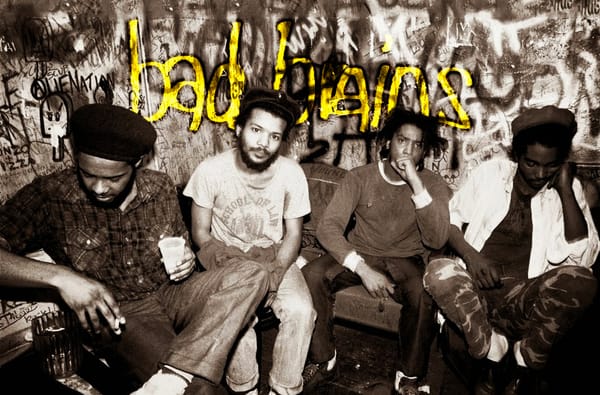David Byrne is far too happy for my liking
David Byrne returns after a long hiatus, but his effort is a bit too twee.

As frontman and founder of New York art-rock band Talking Heads, David Byrne is no stranger to experimentation. Since their final album, Naked, in 1988, he’s released a string of semi-successful solo albums and collaborative projects with the likes of Brian Eno and St. Vincent. Something of a renaissance man, Byrne has dabbled in art, film and theatre; earning himself a Grammy, an Oscar, and a Golden Globe in the process. His book, How Music Works, serves as a bible for aspiring artists and music theorists. New LP, American Utopia, is his first nominally solo release since 2004.
Always difficult to pin down, Byrne deftly navigates an array of genres and styles, from piano-backed balladry to rippling electronica (supplied by Eno), each crevice filled with influences from across the globe. However, one can’t help but feel that this eclecticism comes at the expense of consistency, with very little in the way of musical coherence across the ten tracks. Lyrically, the themes are clearer. You’d be forgiven for assuming that American Utopia must be ironically titled, but Byrne assures us this isn’t so. Part of his multimedia project Reasons to be Cheerful, the record’s message is one of optimism and positivity. It’s an interesting sidestep from a man who built a career out of channelling modern life’s anxieties. Instead of expressing his disillusion at society’s commodities (think ‘Once in a Lifetime’), he celebrates the art of the ordinary and champions the mundane in campfire style sing-alongs. ‘Every Day is a Miracle’, with all its farmyard imagery (“Now the chicken imagines a heaven / Full of roosters and plenty of corn / And God is a very old rooster / And eggs are like Jesus, his son”), comes across as more of a Sunday school ditty than a piece of avant-rock.
“Byrne deftly navigates an array of genres and styles. From piano-backed balladry to rippling electronica”
Now don’t get me wrong, I appreciate what he’s trying to say, I really do. But there’s something about the vibrancy of this album that feels, not insincere but, simple. Maybe that’s just me. After all, being cynical is easy while genuine cheer is difficult to summon. But Byrne sounds tired and blunted. Attempts to veer off the beaten track such as ‘Bullet’ (an ode to a gunshot wound) and ‘Dog’s Mind’ (“We are dogs in our own paradise / In a theme park of our own / Doggy dancers doing doody / Doggy dreaming all day long”) just come across as plain weird. Byrne has also come under fire for the lack of diversity in his production team – 25 men - zero women - for which he publicly apologised, calling his decisions “negligent”.
All this is not to say that Byrne isn’t still at the pinnacle of his art, it’d be unfair to say he’s lost touch. But, though it pains me, it’s clear that he’s really missed the mark on this one.
AMERICAN UTOPIA
Artist: David Byrne. Label: Nonesuch. Top Tracks: Everybody’s Coming To My House; I Dance Like This. For Fans Of: Talking Heads; John Cale. 37 minutes







